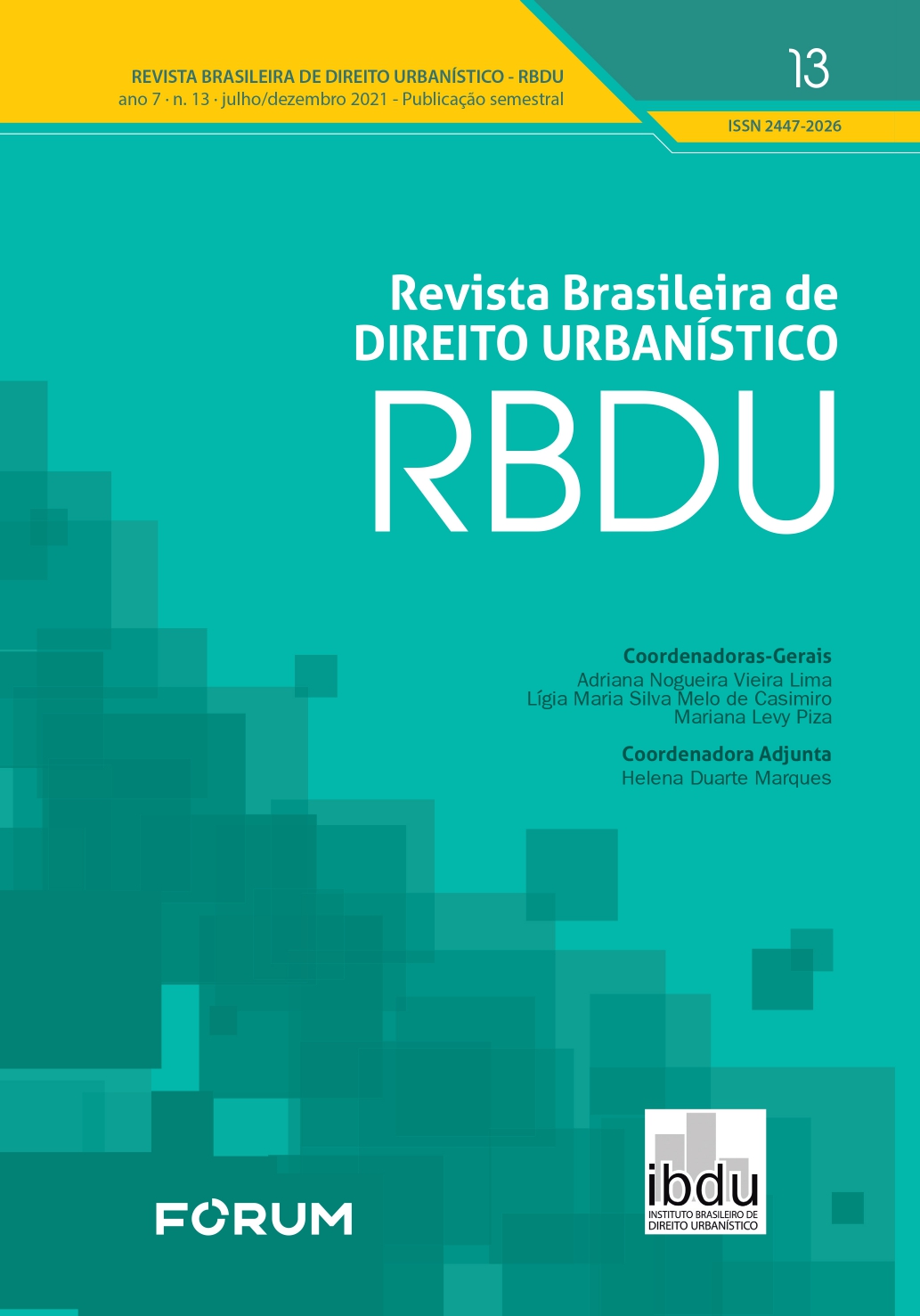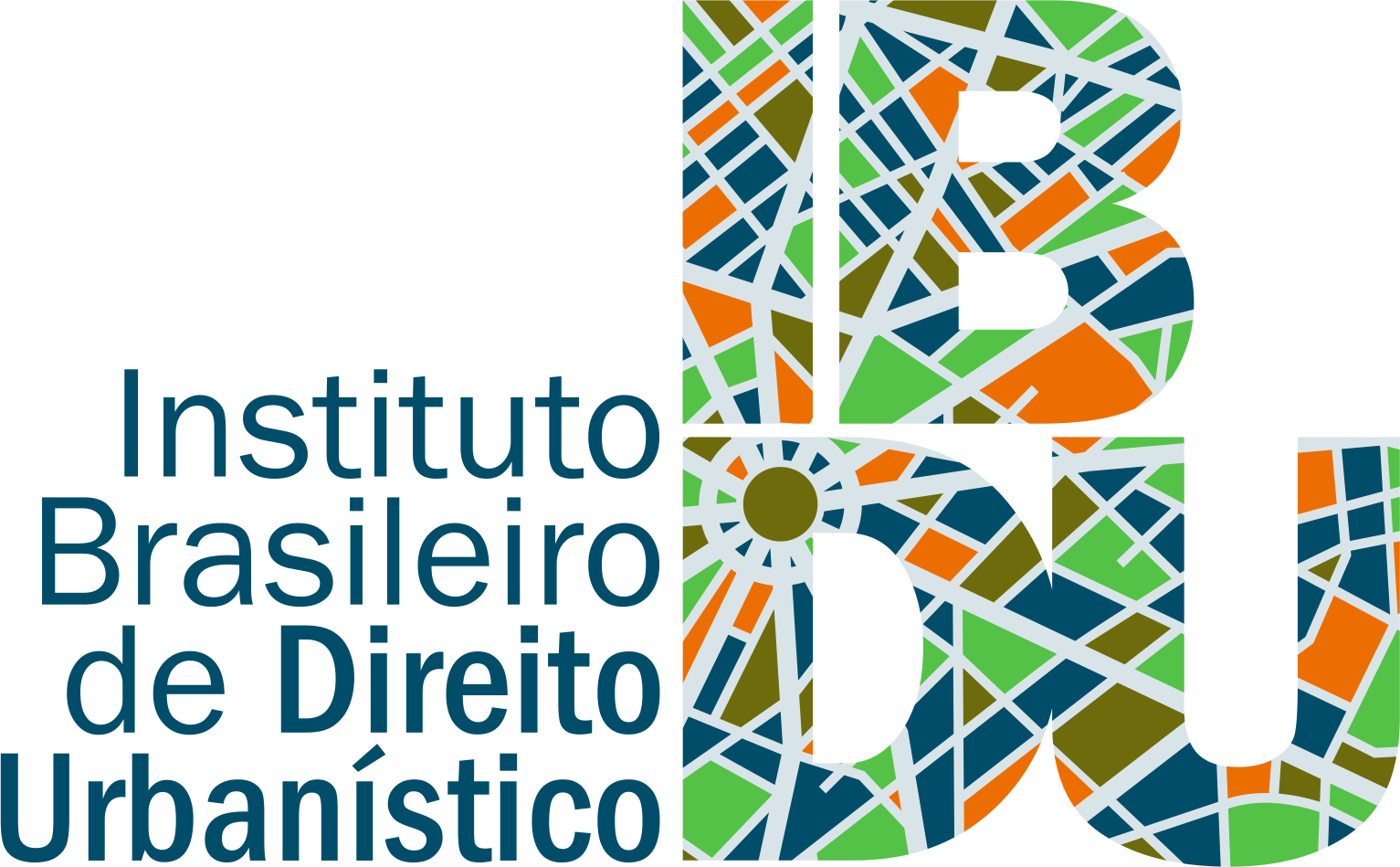The land property regularization of housing sets according to law 13.465/2017 and the social function of the property
DOI:
https://doi.org/10.55663/rbdu.v7i13.742Keywords:
land tenure regularization, housing right, property righ, social function of property, balance between social function and property rightsAbstract
This article brings an analysis of cases using the legislation of Land Regularization in force in the country, in order to propose legal solutions to solve conflicts and assign the social function of property to ensure the right to housing. The work aims to reflect on the advances and gaps that Law 13.465/2017 brought as the main tool in land regularization in irregular areas for over forty years in the State of São Paulo. However, as it does not foresee all the hypotheses or let the regularization for another moment, it has been used in conjunction with other laws, and articulations with local actors from various spheres of power, which can compromise the progress of regularization depending on the priorities of the local power. It is intended to demonstrate solutions in order to avoid the judicialization of procedures for the formation of persuasion of those involved in the land regularization procedure. We also intend to discuss which their responsibilities are, and how the interference of the various spheres of local power, especially the Real Estate Registry Offices, can delay or accelerate the processing of irregular assets in the municipalities, generating land litigation liabilities in cities, increasing the housing deficit and aggravating the situation of social exclusion and poverty of the low-income population.
Downloads
References
ALVES, Castro. O navio negreiro: tragédia no mar. Global, 2008.
BRASIL. Constituição (1946). Constituição dos Estados Unidos do Brasil. Brasília: Planalto do Governo. Disponível em: http://www.planalto.gov.br/ccivil_03/constituicao/constituicao46.htm. Acesso em: 4 jul. 2020.
BRASIL. Constituição (1967). Constituição da República Federativa do Brasil de 1967. Brasília: Planalto do Governo. Disponível em: http://www.planalto.gov.br/ccivil_03/Constituicao/Constituicao67.htm. Acesso em: 4 jul. 2020.
BRASIL. Decreto-lei nº 3.365, de 21 de junho de 1941. Dispõe sobre desapropriações por utilidade pública. Brasília: Planalto do Governo. Disponível em: http://www.planalto.gov.br/ccivil_03/decreto-lei/del3365.htm. Acesso em: 12 de julho de 2021.
BRASIL. Lei nº 13.465, de 11 de Julho de 2017. Disponível em: http://www.planalto.gov.br/ccivil_03/_ato2015-2018/2017/lei/l13465.htm. Acesso em: 3 abr. 2020.
DINAMARCO, Cândido Rangel. Instituições de Direito Processual Civil. 9. ed. Vol. 1. São Paulo: Editora Malheiros, 2017.
FERNANDES, Edésio (org.). Direito Urbanístico e política urbana na América Latina: lições para o Brasil I. Instituto Brasileiro de Direito Urbanístico, 2021, p. 11.
FUNDAÇÃO JOÃO PINHEIRO. Déficit habitacional no Brasil (2016-2019). Belo Horizonte: FJP, 2021.
GOOGLE EARTH. Disponível em: https://google-earth.gosur.com/?gclid=CjwKCAjwk6-LBhBZEiwAOUUDp_BxPOV9P7pbqlj8k6Ae_8cUT0Hn73tts8DjS-uWJoGaeOK53dRzZhoCg9AQAvD_BwE. Acesso em: 2 ago. 2021.
INSTITUTO BRASILEIRO DE GEOGRAFIA E ESTATÍSTICA (IBGE). Cidades e Estados. Disponível em: https://www.ibge.gov.br/cidades-e-estados/sp/indiana.html. Acesso em: 20 jul. 2020.
LEITE, Luis Felipe Tegon Cerqueira; MENCIO, Mariana. Regularização fundiária urbana: desafios e perspectivas para aplicação da Lei n° 13.465/2017. São Paulo: Letras Jurídicas, 2019.
LOCKE, John. Segundo tratado sobre o governo civil. São Paulo: IBRASA, 1963.
MASCARO, Alysson Leandro. Introdução ao Estudo do Direito. 4. ed. São Paulo: Atlas, 2013, p. 96.
ROUSSEAU, Jean-Jacques. A origem das desigualdades entre os homens. 1. ed. São Paulo: Penguim- Companhia, 2017.
SILVA, José Afonso da. Comentário contextual à Constituição. 3. ed. São Paulo: Malheiros, 2007.
Downloads
Published
How to Cite
Issue
Section
License
Copyright (c) 2022 Revista Brasileira de Direito Urbanístico | RBDU

This work is licensed under a Creative Commons Attribution-NonCommercial-NoDerivatives 4.0 International License.
Este periódico é licenciado por Creative Commons (CC-NC-ND-4.0 Internacional). A submissão e a publicação de artigos são gratuitos; Trabalhos avaliados por pares duplas cegas; o periódico utiliza o CrossCheck (antiplágio); e cumpre com o Guia dos Editores da COPE - Committee on Publication Ethics, além das recomendações Elsevier e SciELO. Veja os Termos da Licença Pública Creative Commons Atribuição-NãoComercial-SemDerivações 4.0 Internacional














